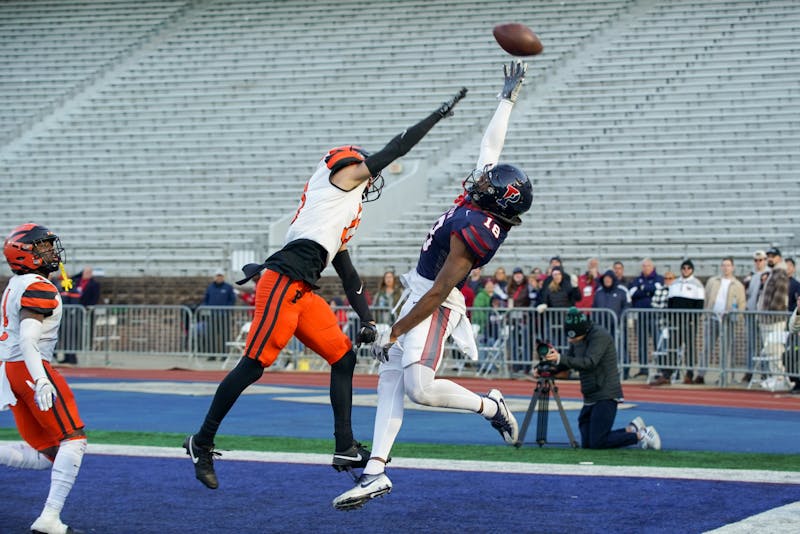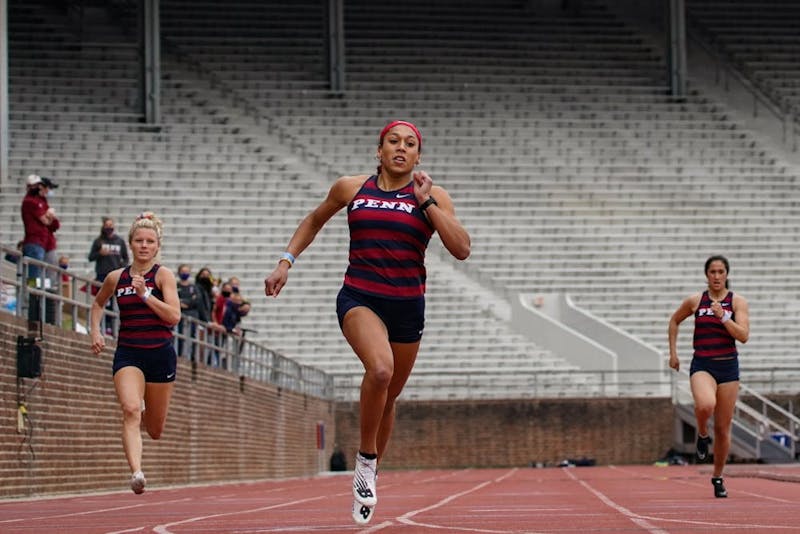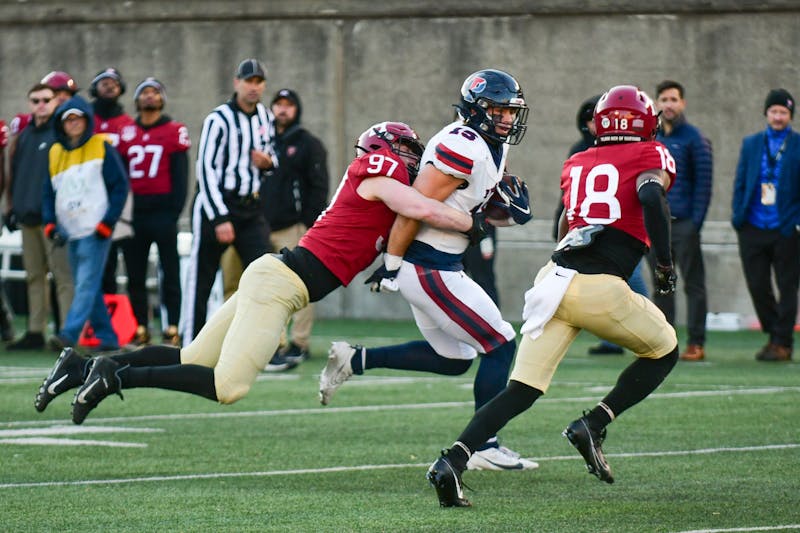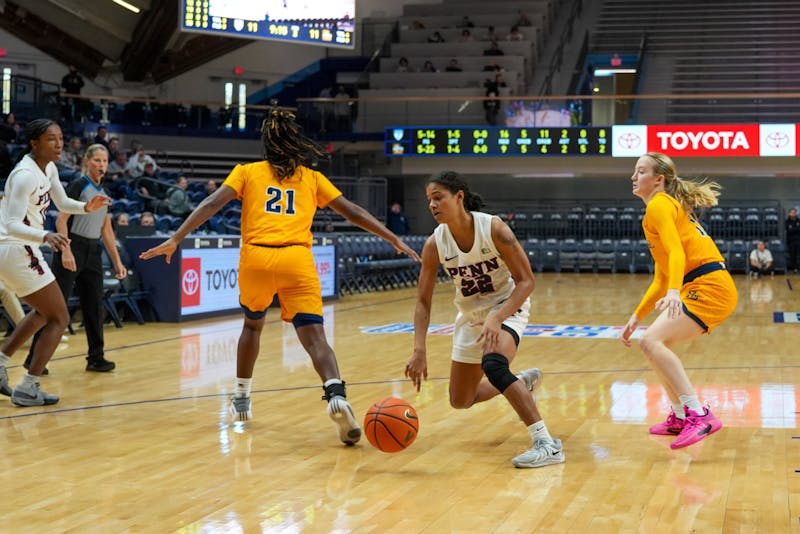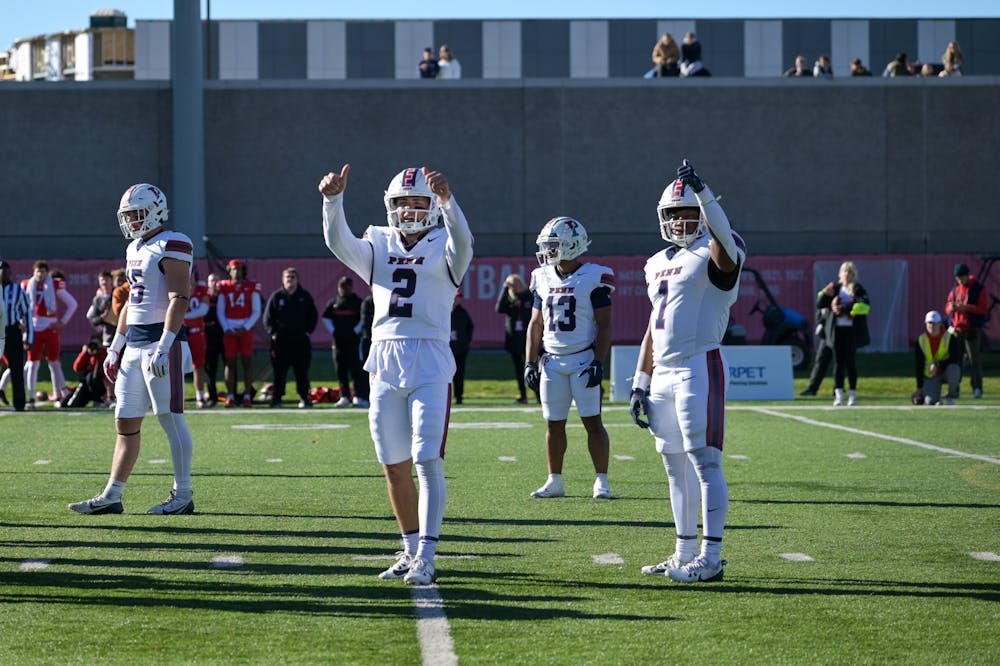
Ivy League football teams will participate in the NCAA Division I FCS playoffs beginning with the 2025 season.
Credit: Uma MukhopadhyayBeginning with the 2025 season, the Ivy League will participate in the NCAA Division I Football Championship Subdivision postseason and be able to vie for a national championship for the first time in the conference's history.
In the Ivy Group Agreement established in 1945, the Ancient Eight has barred any postseason play for football.
The change for the Ivy League to join the FCS playoffs was put in motion by a proposal from the Ivy League Student-Athlete Advisory Committee — a group of 17 student-athletes from all eight institutions in the conference.
“We’ve been at it since last December and have been getting support from our fellow student-athletes across the Ivy League,” Penn junior quarterback and Penn SAAC committee member Liam O’Brien said. “SAAC has been a tremendous support and overall, student-athletes have really supported this movement for the football programs.”
On Dec. 18, the Ivy League Council of Presidents voted to approve the proposal to participate in the playoffs beginning next season.
“It’s a step, which we feel is great not only for Penn football but the league itself, and to get a chance to see us on the national stage,” coach Ray Priore said.
According to a statement from the Ivy League, the conference champion will earn an automatic bid to the FCS playoffs. Additionally, tiebreaker rules are being developed to determine how its automatic qualifier will be awarded when there are co-champions in the future. There were three Ivy League co-champions in the 2023 and 2024 seasons.
The Ivy League’s self-imposed ban on postseason participation was rooted in the conference’s commitment to academics, aiming to avoid the burden of postseason games at the end of the semester for student-athletes during finals. Current Penn football players are optimistic about the ability to balance both come next season.
“We have a good understanding and balance between our academic commitments, our athletic commitments, and other various commitments,” senior defensive lineman Paul Jennings said. “We rarely see guys come up with issues in terms of not prioritizing their academics, so I don't think it would pose an issue. … We have a great leadership team and supporting staff for academics that helps us find success in and outside of the classroom.”
When it comes to recruiting freshmen and retaining top-performing players, the potential of a national title is a draw for both Penn and the Ivy League.
“It will definitely impact in a positive way,” Priore said. “It’ll just bring more people in, and people who are competitors want to challenge for [a national title], and hopefully, retain more players.”
As for current Penn football athletes, they say their goals will always be centered on being successful in the Ivy League, and the postseason is just a big opportunity to continue that success.
“[Playoffs are] really just something extra for us to work towards. … These [Ivy League] rivalries … and an Ivy League title is always going to mean more to us than landing a spot in the FCS playoff,” Jennings said. “But that added level of competition, the opportunity to play more games and compete for a longer season, is something that's going to drive us to pursue more success.”
“Conference championship is very valuable to us, and that’s what we’re really playing for,” O’Brien said. “The opportunity to play new teams, new competition, and just more football in general, that’s very exciting.”
The Daily Pennsylvanian is an independent, student-run newspaper. Please consider making a donation to support the coverage that shapes the University. Your generosity ensures a future of strong journalism at Penn.
Donate







